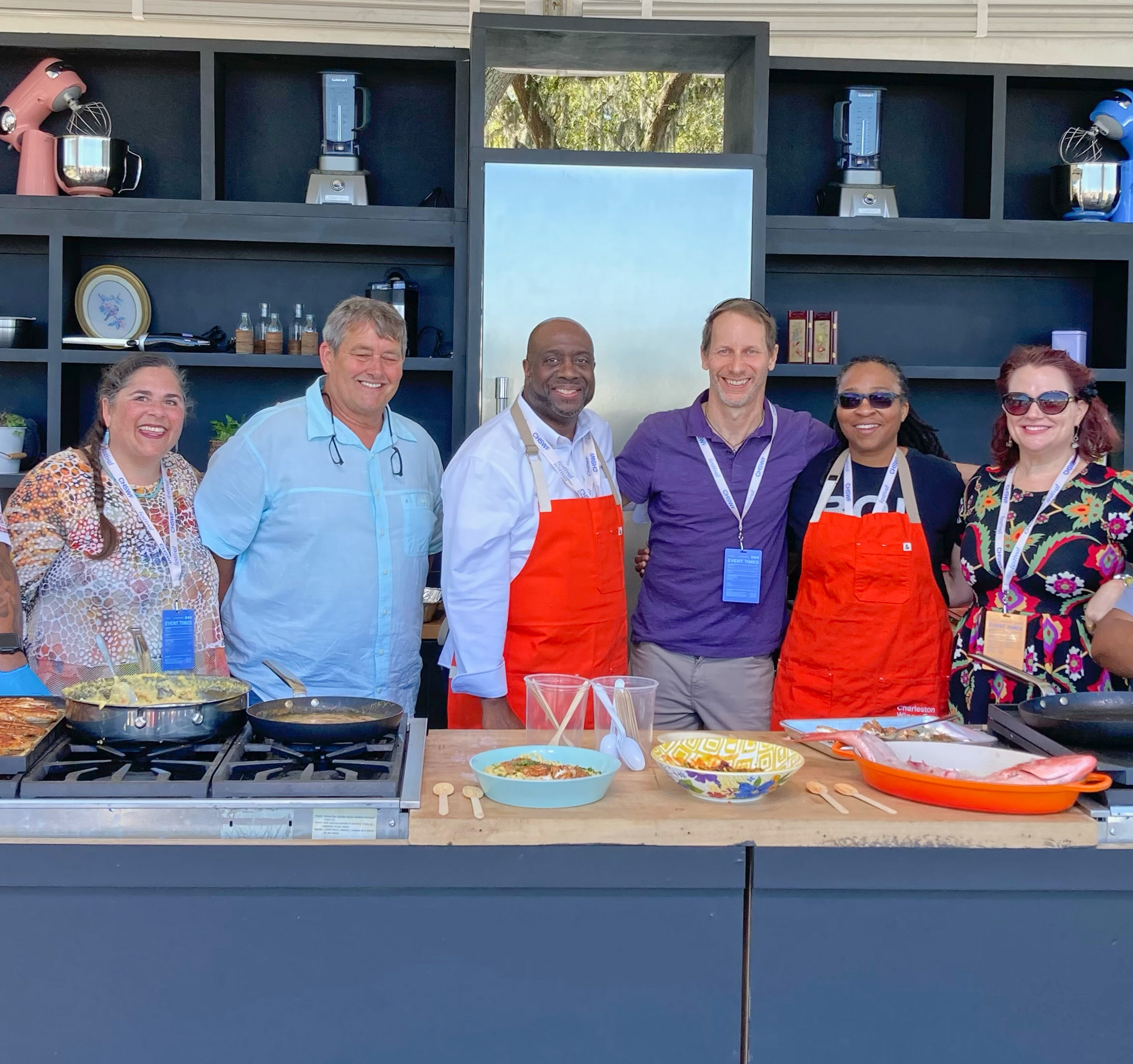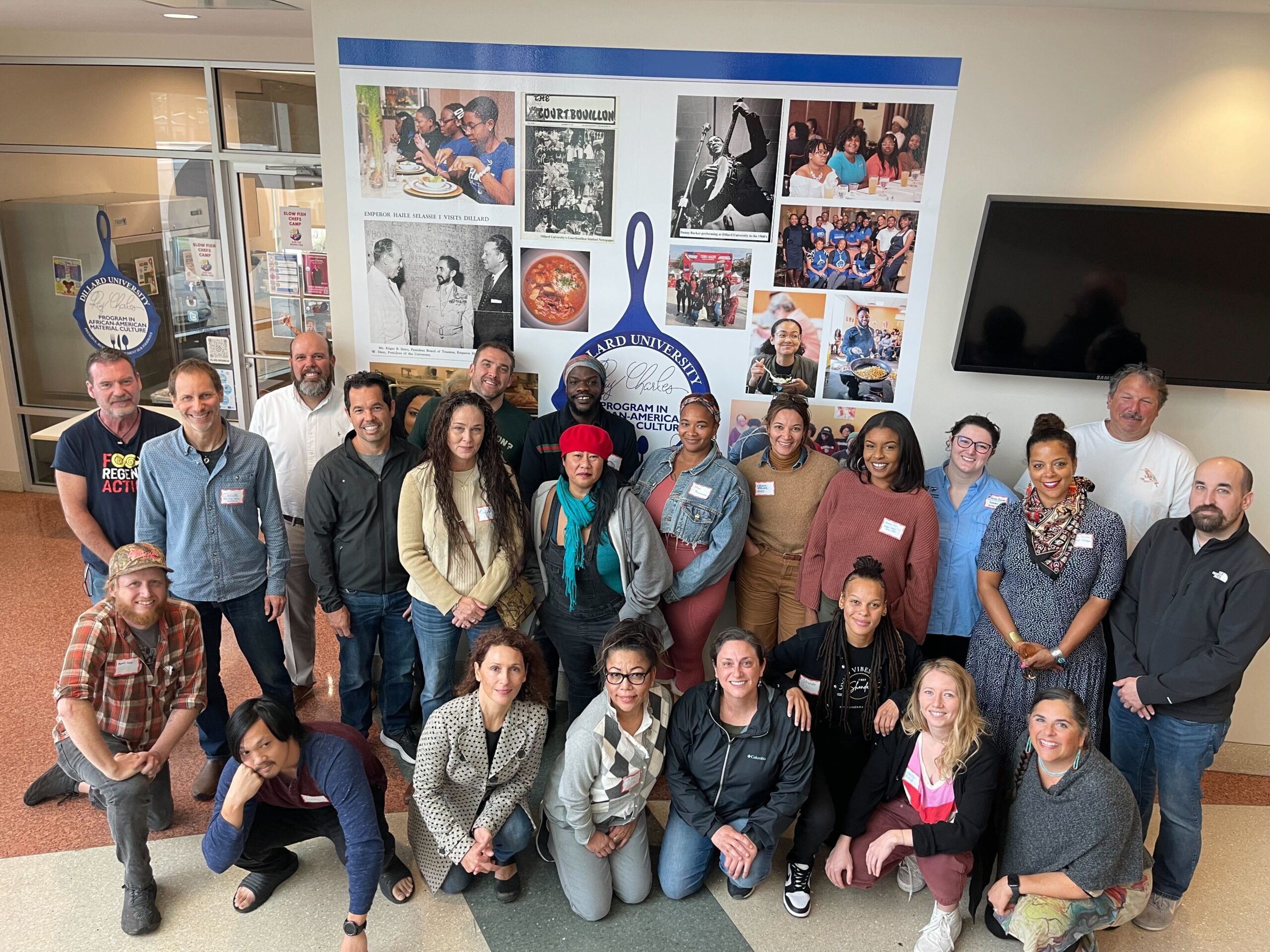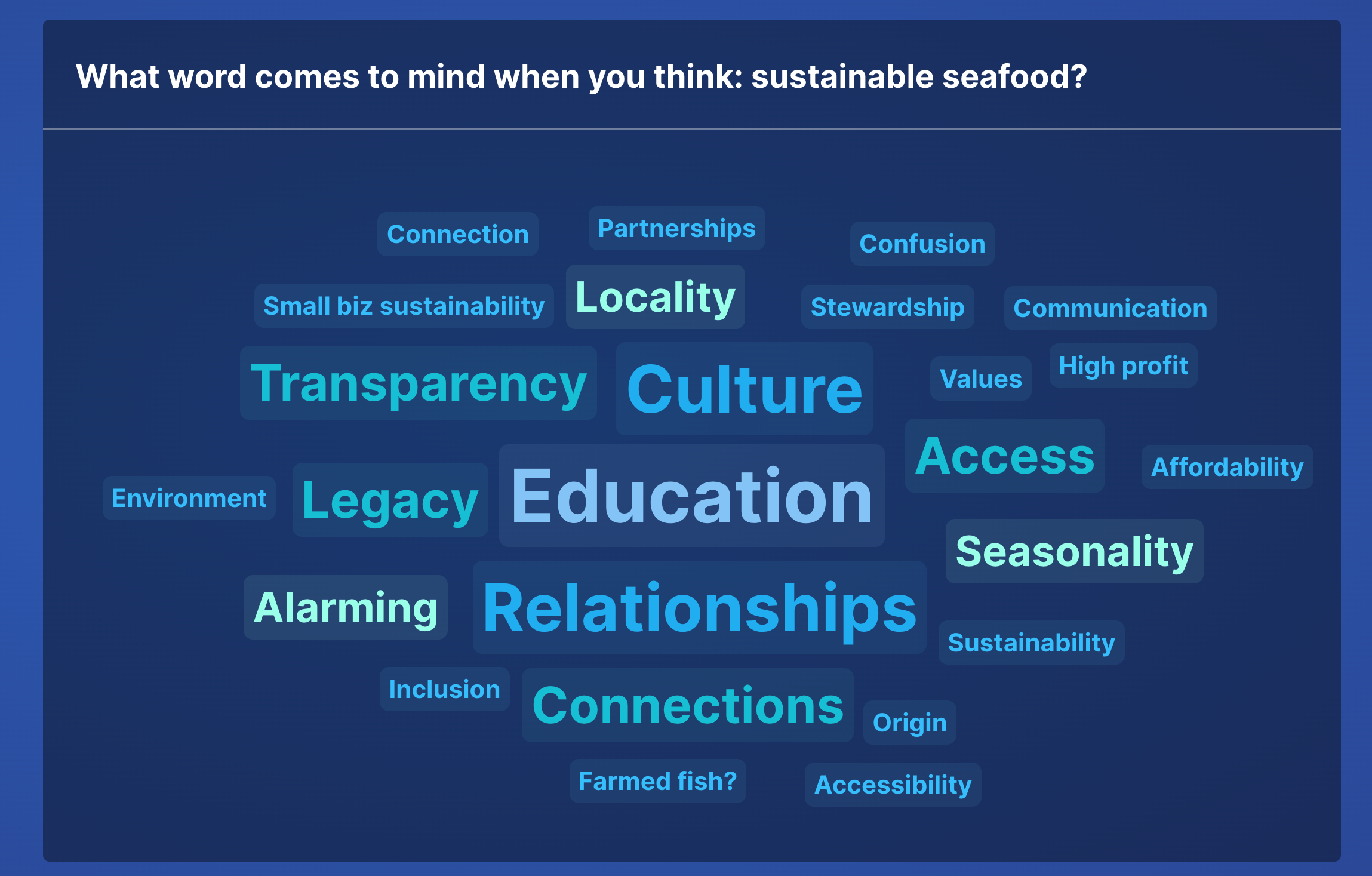By Mara Welton, Director of Programs
I’ve always been a big fan of the ocean waters, lake waters, river waters, and a huge fan of seafood of all types: fishes, oysters, seaweed … this Pisces is all in when it comes to water and seafood. Even so, I’ve never had a year where I’ve been so close to conversations around seafood, the choices we make and the people who source and prepare this food for us.
Alongside financial support from our members and donors, Slow Food USA received a grant from GRACE Communications enabling us to produce grassroots sustainable seafood programming with Slow Food chapters this year.
I teamed up with Slow Fish North America’s network coordinator Colles Stowell to develop ten programs at six different locations throughout 2023. This programming took us from Bastrop, Texas to Charleston, South Carolina to Philadelphia to Massachusetts, and finally to New Orleans — home of domestic Gulf seafood. I’m so grateful for the opportunity to meet up with our network’s communities and meet the activists, fishers, shrimpers, chefs and consumers who are faced with making choices about seafood every single day.
We started in Bastrop, Texas for what we call a KNOW FISH dinner, which brings fishers and chefs together with the public to tell the story of where their seafood comes from. These fish dinner events are small, intimate affairs where eaters can talk directly with the fishers who have caught the seafood that is sitting on their plates. These events anchor the relationships that must be in place for sustainable seafood to be featured on a menu. We heard the story of fisherwoman Sarah Ecolano and how she fishes for a variety of wild salmon heading to spawn in the Copper River in Alaska. She described how she came to be connected with Sonya Cote and Kate Rousset, chefs in Texas who care about where they source their seafood for their customers. KNOW FISH dinners weave together our Slow Fish goals: uplifting fishers, sharing their stories and building a sustainable future together with chefs, fishers and diners at the table.



In Philadelphia, we worked closely with chapter leaders to develop our first ever Chefs Camp, which brought together Snail of Approval-awarded chefs and their teams in the Philadelphia region to have a deep-dive (all puns are intended!) conversation and strategy session around sourcing sustainable seafood and the choices chefs face when they’re making purchasing decisions for their menus. Slow Food chefs are keenly aware of the challenges of sourcing good, clean and fair food for their menus. Seafood sustainability conversations highlight the economics around those choices, and the visual impact and optics of putting certain seafood on your menus. This Chefs Camp really set the stage for future chef-fishermen gatherings. We continued that momentum during The New Orleans Chefs Camp in November, when we built a cohort of leaders who are ready to join together to affect change in their local foodshed. With one voice, they are working to hold corporations accountable for ensuring that truly local seafood is available to chefs on their wholesale lists, and to pay those fishers fair compensation.
What all of these events show us is that every single person in our food web has a role to play. In the Slow Food USA Theory of Change, we have identified our roles in the social change ecosystem: we are weavers of people and communities; we are builders of a movement and a future world that we want to see; and we are storytellers, sharing the stories about the foods we eat and also the people who procure them and steward them along the way. Finally, we are disruptors: these conversations are not easy, but they are necessary, and it is a crucial starting point to disrupt the status quo to affect positive systems change. I’m so heartened by the experiences to see firsthand that people are ready to have these hard conversations.
I am deeply hopeful, extremely excited and galvanized by these experiences from this year! We’ve distilled some action steps based on all of the things we learned together at these sessions about what you can do when you’re making a choice about how to eat seafood at home.
So what happens next?
- We invite you to check out the 7Cs of Sustainable Seafood, a resource we created to help guide you in your seafood choices.
- Check the checklist below when you’re faced with making a decision about seafood whether you’re out to eat or in the grocery store or at your local fishmonger.
Whenever possible: - Purchase your seafood DIRECTLY from a fisher.
- Can’t purchase directly? Try buying REGIONALLY.
- Can’t purchase regionally? Try buying DOMESTICALLY.
- Can’t purchase domestically? Think twice about buying imported seafood.
- Considering farmed finned fish? Know the ecological and socioeconomic impacts of industrial fish farms. (Familiarize yourself with our partner Don’t Cage our Oceans and their guidance on finfish farms and aquaculture).
- Consider sourcing domestic farmed oysters, mussels, clams and seaweed.
- Familiarize yourself with aquaculture values – and explore the Aquaculture Values Report from NAMA
- Check the calls to action that will actually start pushing change at these links:
- Chef Sign-on Letter
- Sign petition to revoke finfish farm legislation
- Sign on to stop wasteful bycatch
- Pack your bags! Make plans to join us in Charleston Nov. 1-4, 2024, to be an integral part of these conversations at our next Slow Fish North America gathering. We are excited to engage in this work together!
Thank you to the GRACE Communications team for the funding to do this impactful work. Thank you to the chapters who invited us into their communities to have these conversations, and thank you to the incredible group of speakers, chefs and fishers who joined us this year to have these conversations. Thanks to my collaborator and friend Colles Stowell for his vast knowledge and passion for our waters.

